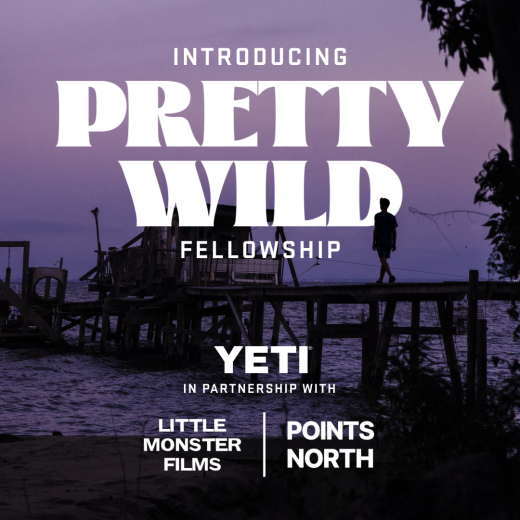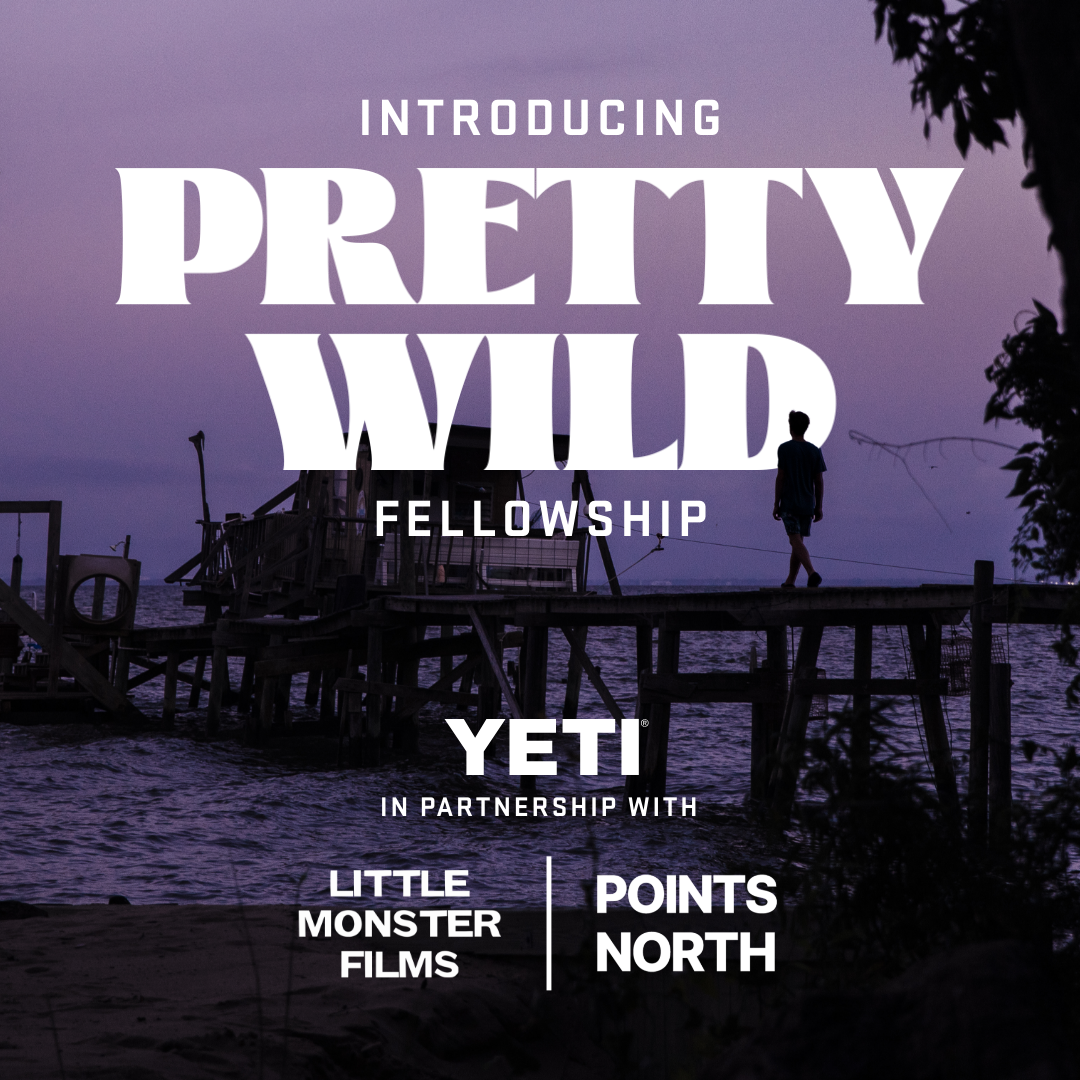Why Yeti’s pretty wild documentary grant is a genius move
Earlier this week, outdoors accessories brand Yeti announced a new $200,000 grant to support emerging documentary filmmakers. Dubbed the Pretty Wild Fellowship, and created in partnership with Academy Award-winners Elizabeth Chai Vasarhelyi and Jimmy Chin and the storytelling nonprofit Points North Institute, it will award four filmmakers $50,000 each in unrestricted grants, as well as mentorship and guidance throughout the development of their films.
The move follows six short films dropped in the past month, bringing its ongoing “Yeti Presents” series total up to more than 75 films since 2015. These films represent a significant building block of what CEO Matt Reintjes described to me earlier this month as the brand’s strategy of depth and breadth approach to growth.
“Brands face multiple points in their journey where they can be deep and relevant, but at the expense of growth and expansion, or they can chase growth and they forget about the depth of connections that they had already built,” Reintjes told me. “Over time, you erode brand value, you erode uniqueness, you erode support and passion for who you are. And so we’ve been really thoughtful about how we drive breadth, adding on more communities, bringing in more consumers domestically, growing the brand internationally, all while also keeping those deep and connected roots all the way back to our earliest communities.”
Way back in 2018, I coined the idea of the “Patagonia Flywheel.” The notion, a riff on how Jeff Bezos envisioned the way in which Amazon have used customer experience and low prices to drive a self-perpetuating model for growth, goes like this: Every time Patagonia furthers its social mission to save the planet, it wins more customers and sales, thereby giving the company more resources with which to pursue its ultimate goal.
So with that in mind, this new Yeti fellowship adds to the company’s flywheel of Yeti’s brand and the content it creates. Its support of up-and-coming artists is a move to keep its connected roots tied to a community of filmmakers, just as the brand works with surfers, chefs, and other outdoors people. It also deepens its relationship with established artists like Chin and Vasarhelyi, and other filmmakers for future projects. Meanwhile, the content created by the fellowship funding will give the brand four new films to showcase all of it.
This is not your traditional influencer marketing investment. Nor should it be. Yeti’s most recent film, The Captain, is an eight-minute short profiling 27-year-old Maine lobster fisher Sadie Samuels. It chronicles her journey from a little girl sleeping by the front door with her boots on in order to catch her dad on his way to work lobster fishing to becoming one of the 4% of women who are Maine lobster fishing licensees. Samuels fishes full time and opened a lobster restaurant in Belfast, Maine. You have to look very, very hard to find a Yeti logo anywhere in the film.
But Reintjes knows that you don’t need to see his company’s logo plastered all over the film for it to be effective. “We always talk about it in terms of the product being our heart, and the brand is our soul,” he told me. “The heart keeps pumping blood through the body, and the soul is what makes it interesting. Keeping those things really tight, which is why we’re really particular about how we do our brand storytelling, that’s a successful recipe to avoid trend-chasing, and still be relevant.”
I thought of that chat with Reintjes in the lead up to last week’s Fast Company Innovation Festival. I moderated a panel on this very topic of how brands can work to turn consumers into fans, featuring E.l.f. Beauty CMO Kory Marchisotto; Ron Faris, general manager of Nike Virtual Studios; Andrew Yaffe, the NBA’s head of social, digital, and original content; and Wieden+Kennedy CEO Neal Arthur, whose agency works with such global brands as McDonald’s, Nike, and Ford, among others.
Marchisotto talked about how a product connects with the head, while a brand needs to connect with the heart, “creating a place of belonging, creating a return on time spent, creating a space where people want to come to over and over and over. You have to transcend, ‘I’m here to sell you a product.’”
Faris added to this observation by saying that another way to connect with people is to show them you’ve been listening. “One of the things that distinguishes a brand that’s just trying to sell stuff versus one that you can feel is really when you can show how much you recognize that your consumers care. [It’s the difference between] knowing someone’s watching your behavior and someone’s appreciating your behavior.”
Arthur shared that the next thing to look out for is how fans of brands are now informing products and content in a way that is evolving that relationship significantly, often based on how they interact with them. “Brands in the past have been carefully curated by people like us, and you put that thing out into the world and hope that people identify with it somehow,” he said. “But now, the most loved brands are being created by their fans. It’s actually informing product development and how the brand behaves. There’s real power now in the fact that people in the real world feel like they are creating these brands, and that’s where the love comes from, a sense of ownership versus just identity and seeing something out there and liking it.”
This echoes another idea that Yeti’s CEO lives by. Each new community that Yeti has entered, with ambassadors and films, has been dictated by those who are most enthusiastic for its products, “like lily pads filling a pond,” Reintjes said. “It’s not random. It just grows out from a base. It’s not fundamentally different to how we built these relationships in the broader outdoor communities like climbing, surf, and skate, where we went to where our product was being used.”
Now through this new fellowship, Yeti is once again proving to be one of the most thoughtful brands in how it creates content, and with whom it works to do so.
The results should be pretty damn wild.
(17)



